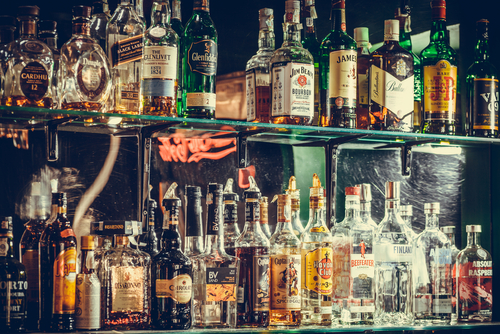People who abuse alcohol may use alternative language to describe alcoholic drinks. This is often done to hide an addiction to alcohol or to make alcohol abuse feel more acceptable.
Regardless of how alcohol abuse is described, it remains unsafe and harmful for the person abusing it. Despite this, many people still struggle with EtOH abuse.
Being unable to control your own alcohol use can be upsetting. Watching a family member or friend succumb to EtOH abuse can be heartbreaking. Fortunately, there are options available to get yourself or a loved one help.
Here’s what you should know about EtOH abuse and how to get treatment for alcohol addiction.
What is EtOH?
EtOH is the formal term for ethanol. This is the ingredient in alcohol that makes it intoxicating. In excess, it can be extremely harmful to the body. People often use the word EtOH instead of the word “alcohol” or “alcoholic drink.”
Alcohol vs. Ethanol: Are they Different?
In chemistry, there are several primary types of alcohol including methyl, ethyl, and isopropyl. Ethyl alcohol, or ethanol, is the only safely consumable type of alcohol. EtOH is alcohol, but not all alcohols are EtOH. Other types of alcohol are often used as fuel or for cleaning and disinfecting.
Types of EtOH Alcohol
The Alcohol by Volume, or ABV, varies between types of alcohol. Knowing how much ABV each alcoholic beverage has is important in determining ethanol exposure.
Here are the ABV percentages for commonly consumed beverages:
- Wine — 5% to 14% ABV with an average of 10%
- Beer — 4% to 7% ABV with an average of 5%
- Rum, Whiskey, and Tequila — 40% to 46% ABV
- Vodka — 35% to 46% ABV
- Gin — 35% to 45% ABV
- Grain Alcohol — 75% to 95% ABV
The Dangers of Mixed Drinks
Mixed drinks can contain a variable amount of alcohol. This is especially true if they are ordered at a bar. Drinks that have more than one type of alcohol or are poured with a heavy hand may have an unknown ABV.
Mixed drinks are also often fruity or pleasant-tasting. They may not taste like they have any alcohol in them at all. This makes it difficult to know how much EtOH is being consumed. This can result in losing control over drinking in moderation.
What is EtOH Abuse?
EtOH abuse can occur in two different ways: immediately or over time. Most people think that alcohol abuse is drinking to excess often. However, alcohol abuse can also occur on a single occasion. This is known as binge drinking.
A person who abuses EtOH regularly may be considered an alcoholic. A person who abuses EtOH by binge drinking may not be defined in the same way because their alcohol consumption isn’t regular.
However, when a person uses EtOH in large amounts for the purpose of becoming intoxicated, this is abuse. Even though it may occur less often, binging on EtOH can cause serious harm and even death.
What Are the Signs and Symptoms of EtOH Abuse?
Signs and symptoms of EtOH abuse include:
- Mood swings
- Irritability
- Major changes in behavior
- Blackouts
- Memory loss
- Isolation from friends and family
- Drinking alone or secretly
- Coming up with excuses to drink
- Changes in groups of friends
- Neglecting responsibilities
- Feeling hungover when not drinking
Questions to Ask About EtOH Abuse
It can be difficult to tell if you or your loved one are a social drinker, a binge drinker, or an alcoholic.
Here are some questions you can ask yourself or a friend or family member you believe may be struggling with EtOH abuse:
- Do you feel like you should cut back on drinking?
- Have you ever felt like you were drinking too much?
- Does it bother you if someone tells you you’re drinking too much?
- Do you crave a drink, even at times someone wouldn’t normally drink like in the morning?
- Do you have to drink more alcohol to feel the same effects as you used to?
- Have you given up hobbies to make time for drinking?
- Do you feel sick or hungover often?
- Do you feel symptoms of withdrawal when you are not drinking?
- Has a doctor told you that you should stop drinking?
If speaking with a loved one about EtOH abuse, make sure they are comfortable with the conversation. Don’t push the issue if they seem defensive or upset. Instead, reach out for professional help.
The Risks of EtOH Abuse
According to the National Institute on Alcohol Abuse and Alcoholism, EtOH abuse can affect nearly every part of the body.
The most damage caused by EtOH happens in:
- The liver. Excess EtOH consumption causes the liver to become inflamed. Over time, this can result in fatty liver disease, alcoholic hepatitis, and cirrhosis.
- The brain. EtOH interrupts the brain’s ability to communicate with itself, resulting in confusion and mood or behavior changes.
- The heart. Too much EtOH can result in high blood pressure, stroke, irregular heartbeat, and cardiomyopathy.
- The immune system. Drinking EtOH lowers the body’s ability to fight off disease. This is true even after a single drinking episode.
- The pancreas. EtOH causes the pancreas to produce toxins that can lead to a serious condition called pancreatitis.
EtOH abuse can also increase the risk of developing certain risks of cancer. This includes esophageal cancer, liver cancer, colorectal cancer, breast cancer, and cancers of the head and neck.
Getting Treatment for EtOH Abuse
Dealing with an EtOH abuse problem can be frightening. It can seem almost hopeless, but you’re not alone. Whether you’re abusing EtOH or are concerned for a loved one, help is available.
Browse our directory to discover caring, compassionate treatment centers near you. It’s never too late to start the road to recovery.
Sources:
- Alcohol’s Effects on the Body.
- Alcohol and Cancer Risk.
- Main Types of Alcohol.
- How Much Alcohol is In My Drink?


